
It’s heart disease—not breast cancer—that women need to worry about
Most women fear breast cancer, but heart disease is actually the No. 1 killer for women. Each year, heart and stroke kills 31,000 women in Canada, according to the Heart & Stroke Foundation. Women’s heart health risks increase after menopause, yet just one in five women believe that heart disease is the greatest threat to their health. Here are 13 common health issues you think you have—but probably don’t.
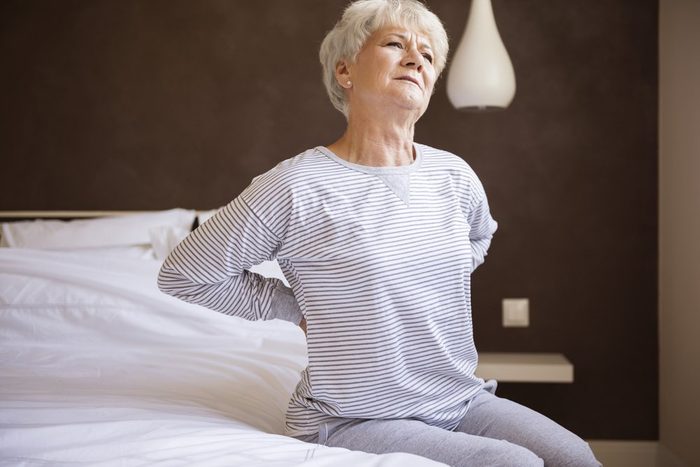
Heart attacks look a whole lot different on TV
A man grabs his chest and falls to the floor—everyone has seen this type of heart attack on TV and in the movies, but that’s not always what it looks or feels like in women. For women, the most common heart attack symptom is chest pain or discomfort, but they are more likely to experience shortness of breath, nausea, vomiting, and back or jaw pain. According to the Heart & Stroke Foundation, most Canadian women have at least one risk factor for heart disease and stroke.
Must read: These 7 facts about heart disease could save your life.

You’re more likely to survive a heart attack if your doctor is a woman too
A study of close to 582,000 heart attacks over 19 years found that women had a significantly higher survival rate when a female doctor treated them in the emergency room. The findings are published in the Proceedings of the National Academy of Sciences. “You have highly trained experts with life or death on the line, and yet the gender match between the physician and the patient seems to matter a great deal,” says Seth Carnahan, associate professor of strategy at the Olin Business School of Washington University in St. Louis, in a news release.
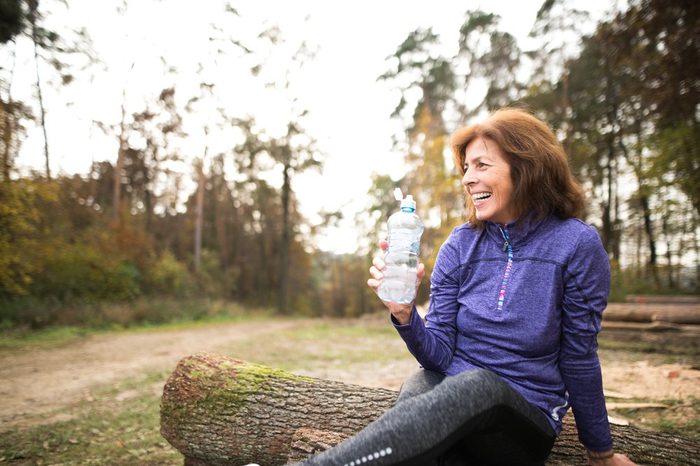
Exercising now will slash your risk of dementia
Move it or lose it, literally. This is the main message of a study in Neurology that found women who are physically fit at middle age are nearly 90 percent less likely to develop dementia decades later, compared to women who are moderately fit. “These findings are exciting because it’s possible that improving people’s cardiovascular fitness in middle age could delay or even prevent them from developing dementia,” says study author Helena Hörder, PhD, of the University of Gothenburg in Sweden, in a news release. But, she cautions, “this study does not show cause and effect between cardiovascular fitness and dementia, it only shows an association. More research is needed to see if improved fitness could have a positive effect on the risk of dementia and also to look at when during a lifetime a high fitness level is most important.”

Morning people may be less likely to develop breast cancer
Are you an early riser? If so, you may be less likely to develop breast cancer. Women who are “morning people” have a lower for risk breast cancer, according to research presented at the 2018 National Cancer Research Institute Cancer Conference. The study also found that women who sleep more may have higher chances of developing breast cancer. While more research is needed to confirm these results, the findings “are consistent with previous research…[on] exposure to ‘light-at-night’ as risk factors for breast cancer,” says Rebecca Richmond, PhD, a research fellow in the Cancer Research UK Integrative Cancer Epidemiology Programme and the MRC Integrative Epidemiology Unit at the University of Bristol, United Kingdom, in a news release.
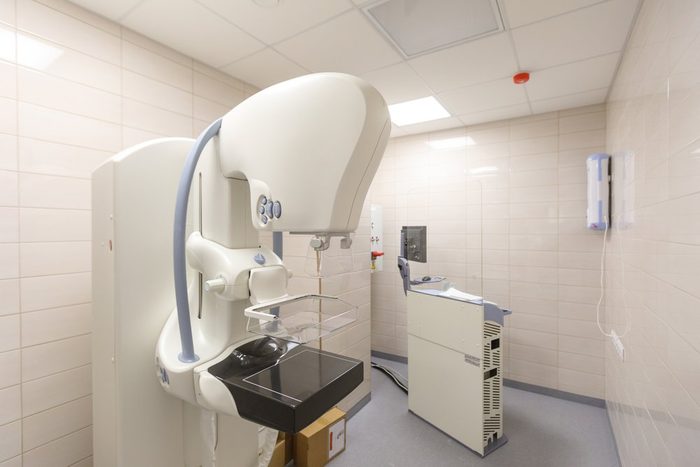
You’re not off the hook for mammograms after age 75
If you’re still in good health, you should probably still get screened, according to the Harvard Health Letter. Although there has been some back and forth on this issue. One reason to continue is the comparatively high incidence of breast cancer found in this age group, according to research presented at the annual meeting of the Radiological Society of North America (RSNA). The Canadian Cancer Society recommends talking to your doctor about what’s right for you based on your health history. Find out why being vocal about metastatic breast cancer is so important.

Adding soy to your diet can strengthen your bones
It’s not just calcium and vitamin D that can help shore up your skeleton: Soy-based whole foods such as tofu and soy milk may also do the trick, find researchers out of the University of Missouri-Columbia.
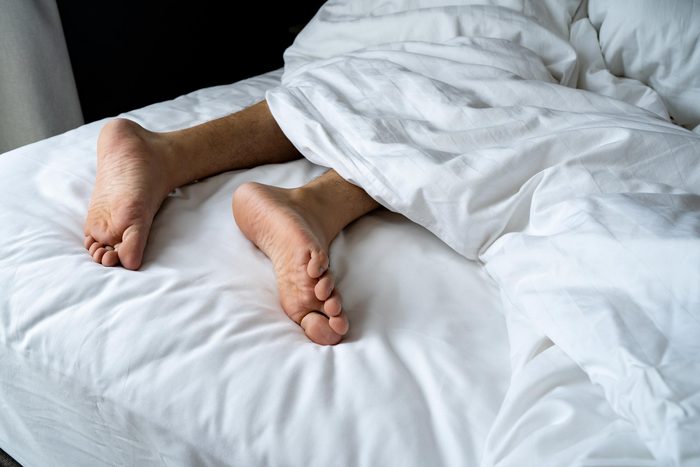
Snoring is hard on your heart
Yes, your husband’s snoring drives you mad, but your own snoring may be bad for your ticker. Obstructive sleep apnea, which is marked by heavy snoring, gasping, and pauses in breathing while asleep, may lead to heart problems in women—and they can turn up earlier than the effects on men’s hearts, according to a new study presented at the annual meeting of the Radiological Society of North America. The findings also suggest that sleep apnea may be vastly underdiagnosed among snorers. Here are some silent signs of sleep apnea that you may be ignoring.
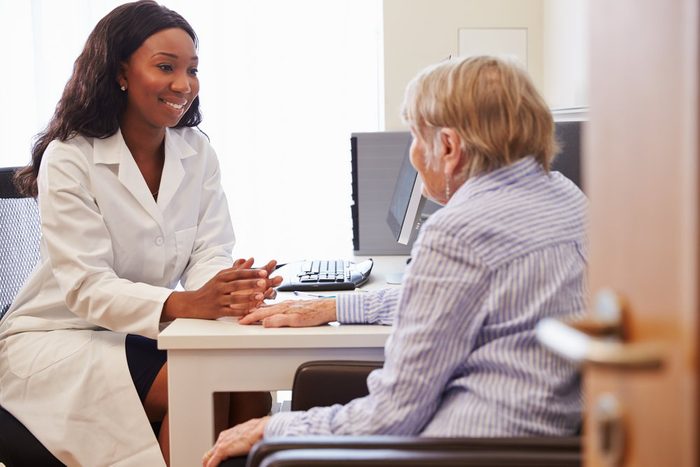
HRT isn’t all bad
Hormone replacement therapy (HRT) fell from grace a few years back: Results from the U.S. Women’s Health Initiative study suggested HRT could increase the risk of strokes and breast and ovarian cancer. However, if HRT is used in low doses for a short period of time, it can dramatically ease some symptoms of menopause, explains Donnica Moore, MD, a Far Hills, New Jersey-based women’s health expert and host of the podcast In the Ladies’ Room with Dr. Donnica. “HRT is not one drug. It is a whole category, including pills, patches, creams, gels, inserts and more,” she says. Her point is that some formulations may be safer and suitable for easing the complaints of menopause. “Fully half of all women experience vaginal dryness with menopause and this doesn’t get better and it is treatable.”
Want to take charge and balance your hormones? Here’s how to make your own Hormone Balancing Adaptogen Blend.
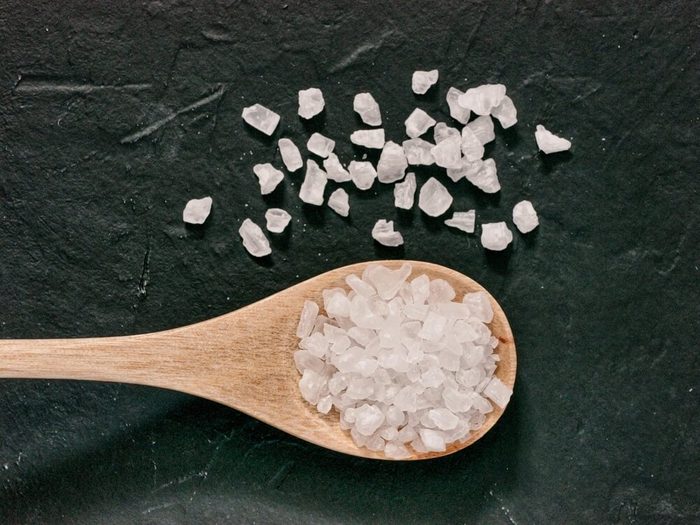
You may benefit more than most from a low-salt diet
Cutting back on sodium may lower blood pressure in women better than it does in men. Women also might benefit most from drugs that directly block aldosterone, a hormone and blood vessel constrictor that is naturally higher in females and is further elevated by a high-salt diet, according to a report in the journal Hypertension.
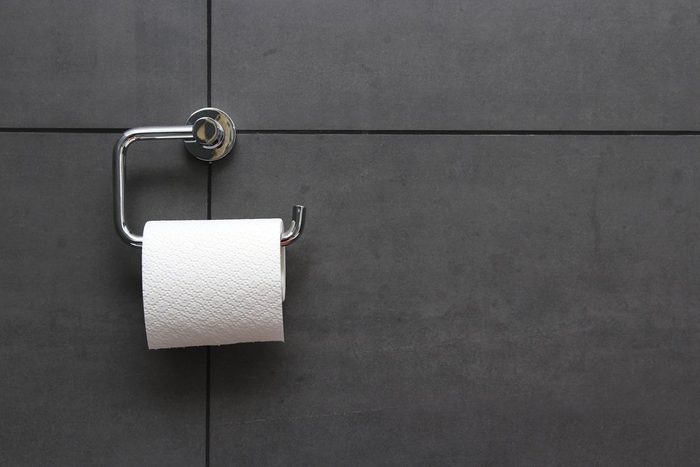
You’re not the only one
Millions of women can’t control that “gotta go” feeling (urge incontinence) or leak during exercise or when they sneeze or cough (stress incontinence), and this risk increases after menopause. “It’s common but not normal, and any leaking of urine should be evaluated and treated,” Dr. Moore says.

Your menopause symptoms could be a relationship issue
Women who are emotionally abused by a spouse or partner may suffer from more menopausal symptoms than their counterparts in healthier relationships. Specifically, one in five women in the study of more than 2,000 women at mid-life and older had suffered emotional abuse by a current or former partner; these women had 50 percent higher odds of night sweats and 60 percent higher odds of painful sex. “The data show that experience of domestic violence and emotional abuse, sexual assault and clinically significant PTSD (post-traumatic stress disorder) symptoms are common, and may affect women’s health across the lifespan,” says first author Carolyn Gibson, PhD, a clinical research psychologist affiliated with the University of California at San Francisco’s Department of Psychiatry, in a news release. Check out 10 quiet signs you’re in perimenopause.
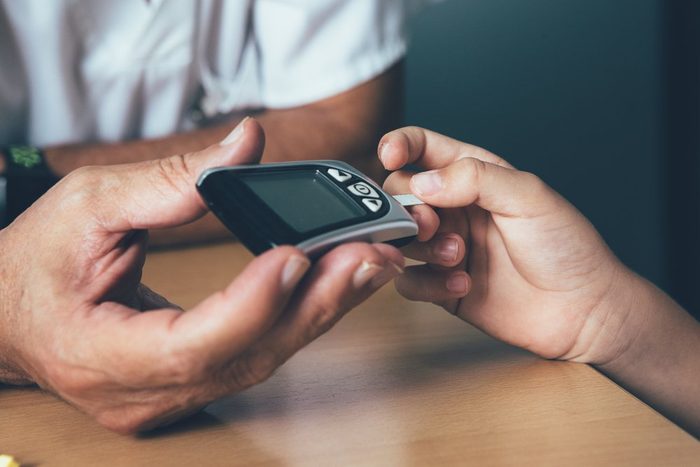
The triple threat is real
Smoking, diabetes and high blood pressure are all bad for the heart, but they may be even worse for women’s hearts, new research shows. Of 472,000 Britons aged 40 to 69, women experienced the highest increase in heart attack risk—though both sexes suffered. Specifically, male smokers had more than twice the risk of heart attack than men who had never smoked, and women smokers had more than three times the risk of heart attack compared to never-smokers. This same trend was seen with high blood pressure and diabetes.

Your sleeping position matters
Stomach and side sleeping positions can cause wrinkles over time, and this effect gets worse as you age thanks to the natural thinning of your skin, according to a study in Aesthetic Surgery Journal. Most sleep wrinkles can be seen on the forehead, lips, and cheeks. If you can tolerate it, sleeping on your back can help slow the wrinkles. These Canadian skincare brands are worth obsessing over this winter.
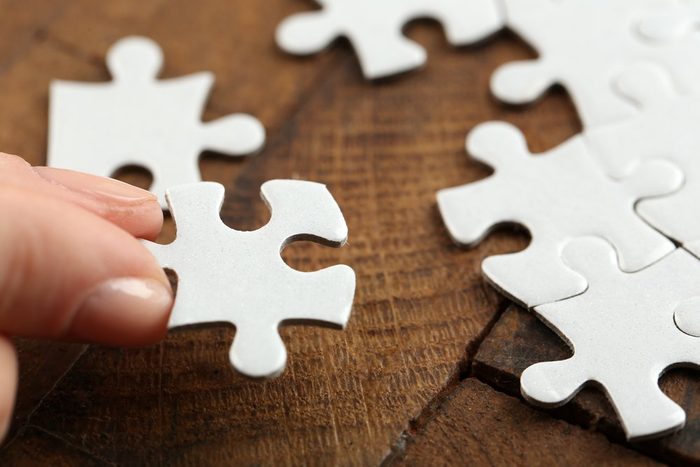
Dementia is not a given
More than one-third of dementia cases could be prevented or significantly delayed by addressing lifestyle-based risk factors such as learning to eat right and engaging in regular exercise, according to the newly launched health initiative, Be Brain Powerful: A Campaign for Women’s Brain Health.
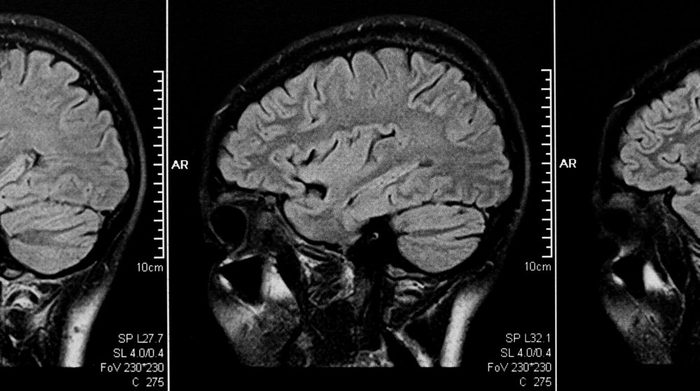
Alzheimer’s is a woman’s issue
Almost two-thirds of Americans with Alzheimer’s are women, and more than 60 percent of Alzheimer’s and dementia caregivers are women, according to Jill Lesser, the president of Women Against Alzheimer’s. “Women are very interested in brain health and very aware of brain health and the issues surrounding cognitive decline, but are very confused about what to do about it and still very scared,” she says. The 30-Day Brain Health Challenge involves emailing simple tips on boosting brain health daily for 30 days to get women started on the right path. Find out how the MIND Diet can reduce your risk of Alzheimer’s.
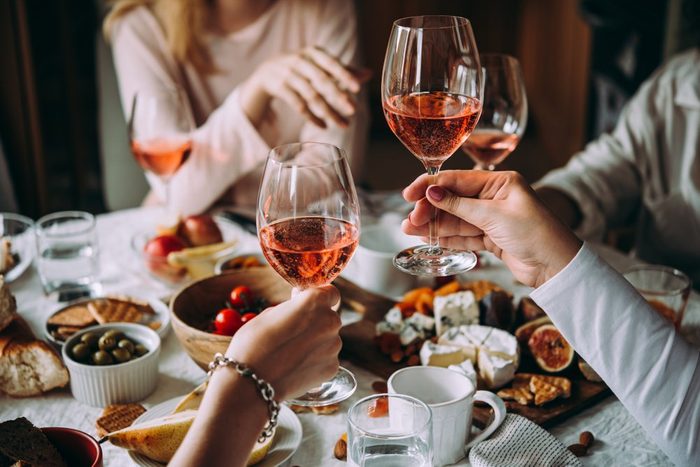
Keep up with the girls nights
Staying engaged with friends and connected to a community can help prevent cognitive decline, Lesser says. “There is an increasing amount of evidence that community engagement can protect the brain so try to do activities—such as eating and exercising—with others.” Here are 5 ways to beat loneliness.
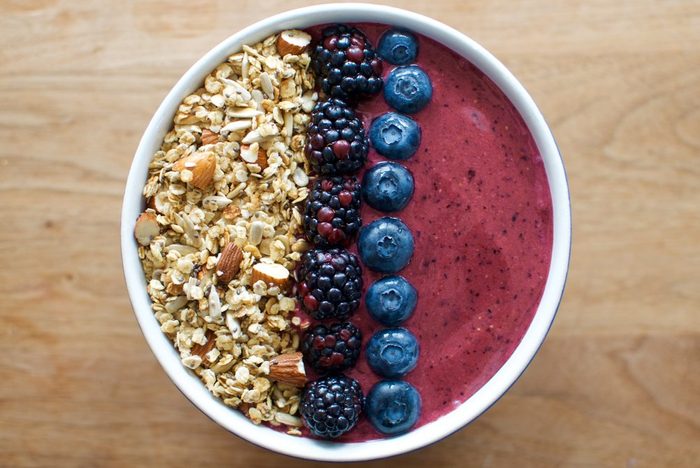
You really are what you eat
Planning a healthy diet that’s rich in good fats, dark leafy greens, berries, and fish may help protect your noggin, Lesser says. Diets that limit carbs can also boost brain health. “Your brain needs healthy fats, and fewer sugars and carbs.” Talk to your doctor or a dietitian about what style of eating is best for you. These 14 healthy foods are always in a Dietitian’s fridge.
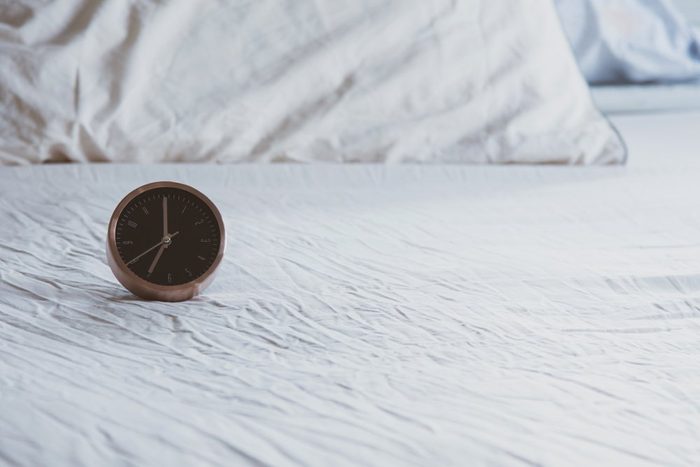
Stick to a bedtime
Most of us haven’t had a real bedtime since childhood, but Dr. Moore says it’s time to re-institute one. “Getting adequate sleep is highly underappreciated as a health issue in women after 50, and setting and sticking to a regular bedtime can help make sure you are getting enough—just like it did when you were a kid.” The Office on Women’s Health in the U.S. Department of Health and Human Services recommends that women aged 50 and older get at least seven to eight hours of sleep per night. Have some serious sleep habits you need to kick? Here are 10 things they’re trying to tell you.
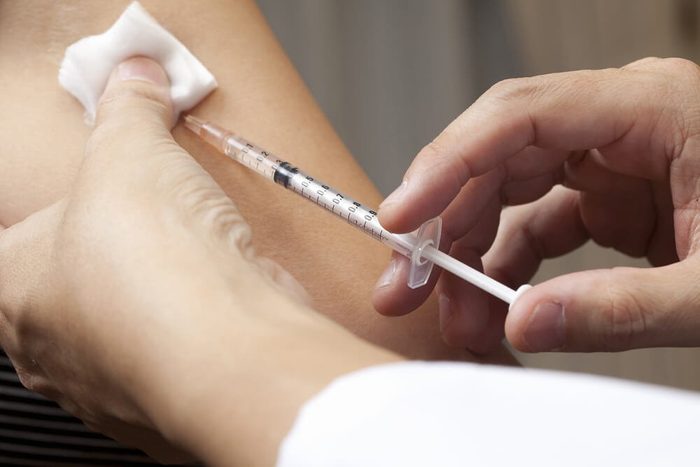
Vaccinations aren’t just for kids
Women over 50 should get a flu shot yearly and talk to their doctor about other vaccines, such as those for pneumonia and the herpes zoster (shingles). “Your doctor can tell you which vaccines that you need after 50,” Dr. Moore says.
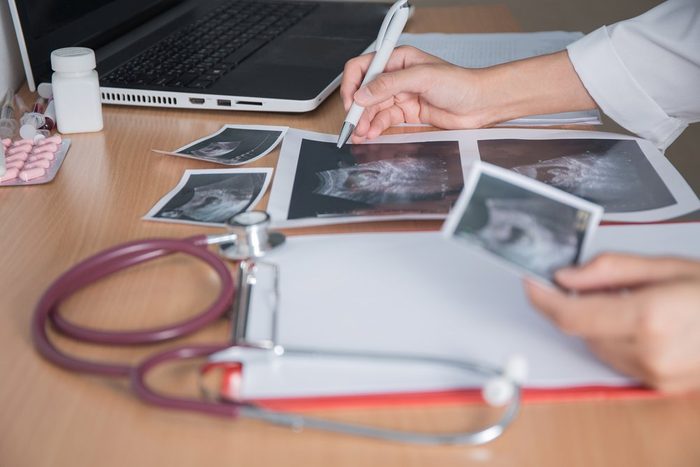
You can still get pregnant
If you haven’t officially entered menopause, you can still become pregnant, and you may need to use birth control, Dr. Moore says. Menopause is diagnosed when a woman hasn’t had her period for 12 straight months for no other obvious reasons, and most women enter menopause at age 51.
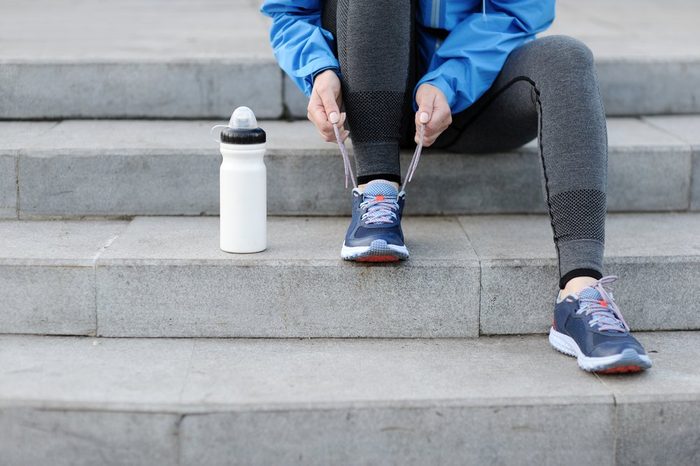
Losing weight is tougher after 50
It’s time to start watching what you eat a little more closely—and maybe add an exercise day to your week. (Mindful eating can also help.) As women hit menopause, their metabolism can slow, making it an uphill battle to lose weight.
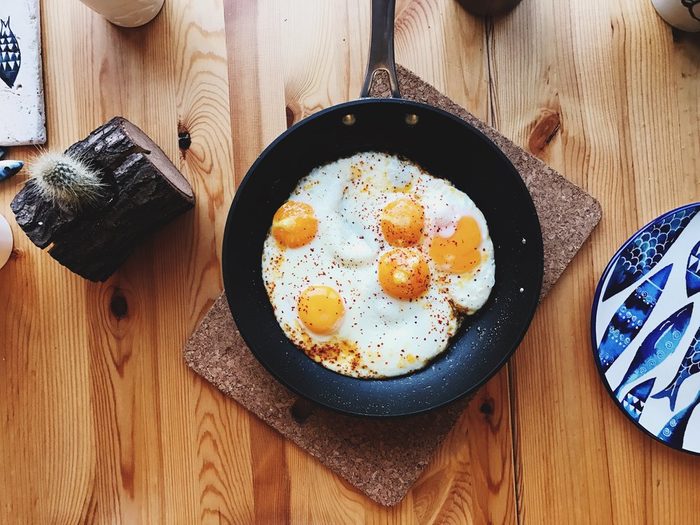
You need protein to boost your muscle strength
Another reason your metabolism slows after 50 is that muscle mass declines with age. Eating an equal amount of protein at all three meals may help boost muscle strength in people older than 67, according to a study published in the American Journal of Clinical Nutrition. Love smoothies? Here are 15 easy ways to up your protein intake.
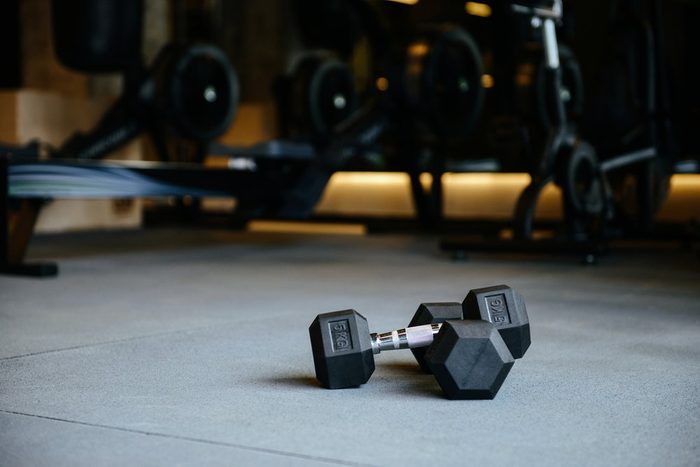
Cardio is no longer enough
Add some strength training to your workout regimen after 50 to help lose weight, advises Louis J. Aronne, MD, an obesity medicine specialist with The Comprehensive Weight Control Center at Weill Cornell Medicine in New York City. Because you’re losing that muscle mass, it’s more difficult to maintain your weight, he explains. Resistance exercise can help preserve your muscles.

Falling is a real risk
It’s not just the elderly who are in danger of falls and fractures: New research finds that falls become more common after the age of 40—particularly in women. Falling is more dangerous than you think—it’s one of the leading causes of hospitalization and mortality in the elderly, according to the CDC.
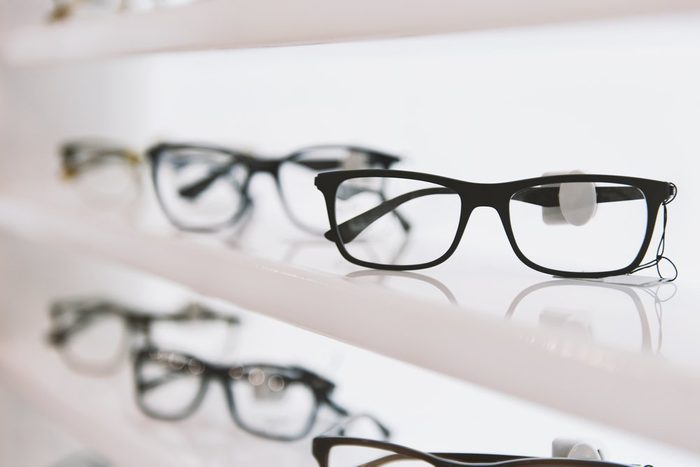
You’ll need readers
Menu print isn’t getting smaller, it’s your vision. Many adults start to have problems seeing clearly at close distances, especially when reading and working on the computer. The problem can start in your early to mid-40s, and it can get worse with age, according to the American Optometric Association. Today’s readers are a lot more fashion-forward then they used to be. Check out Bunny Eyez, new readers that adjust to whatever activity you’re doing. Here are 10 things you’re doing wrong when it comes to your eyes.

You may need more D
Vitamin D is known as the sunshine vitamin because our bodies produce it in response to sunlight. In recent years, low levels of this key nutrient have been linked to a host of diseases and conditions including metabolic syndrome among postmenopausal women. In one study, there was a 60 percent rate of metabolic syndrome—a collection of dangerous conditions like high cholesterol and blood pressure—seen among women with vitamin D deficiency.
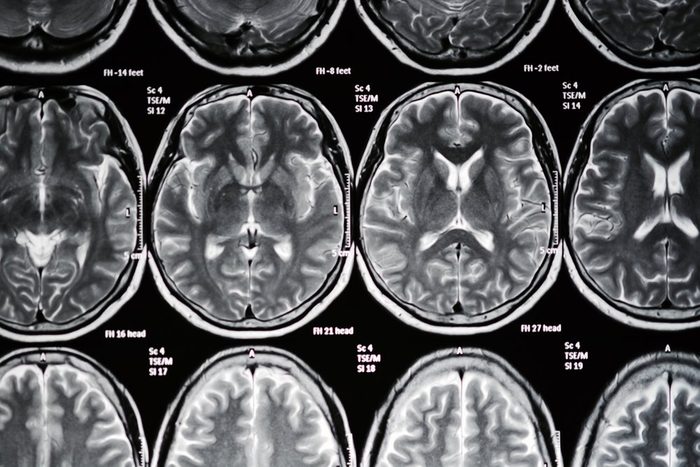
Eat for your heart and mind
If something is good for your heart, it’s good for your brain too, says Suzanne Steinbaum, DO, the Director of Women’s Cardiovascular Prevention, Health, and Wellness at The Mount Sinai Hospital in New York City. “Heart-healthy foods and habits are also brain healthy.” These foods will lower your cholesterol naturally.
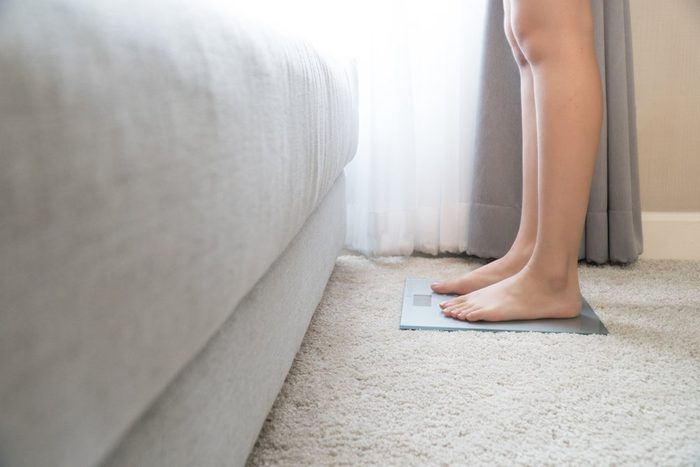
Your numbers matter
Knowing your cholesterol, blood pressure, blood sugar, weight, and body-mass index (a combo of your height and weight) are crucial by the time you reach 50, Dr. Steinbaum says. Making sure that these numbers are in the healthy range will go a long way toward protecting your heart and brain as you age, she says.
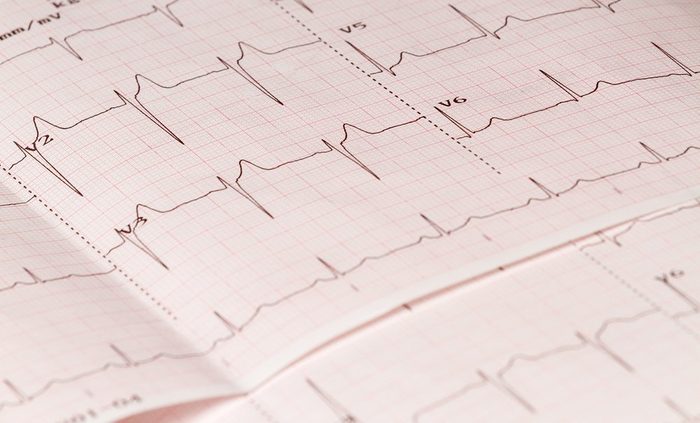
Your heart is not your mom’s heart
Just because your mom had heart disease doesn’t mean you will too. This is why it’s important to know your family health history, Dr. Steinbaum says: “The more you understand about your history, the more you can fight against it,” she says. “Heart disease is preventable as much as 80 percent of the time, and the sooner we start prevention, the more effective it will be.” Read up on why heart disease is the second leading cause of death in Canadian women.
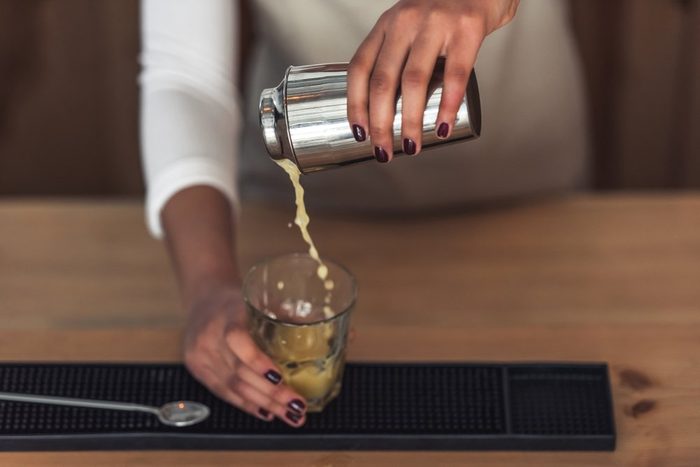
Don’t drink like a man
Even if you can, you shouldn’t—women who go drink-for-drink with their male counterparts are at greater risk of dementia, alcohol-related cancers (like breast), and heart issues, according to the American Heart Association (AHA). The group recommends women stick to one drink per day maximum (men can have two). A drink is one 12 oz. beer, 4 oz. of wine, 1.5 oz. of 80-proof spirits, or 1 oz. of 100-proof spirits.
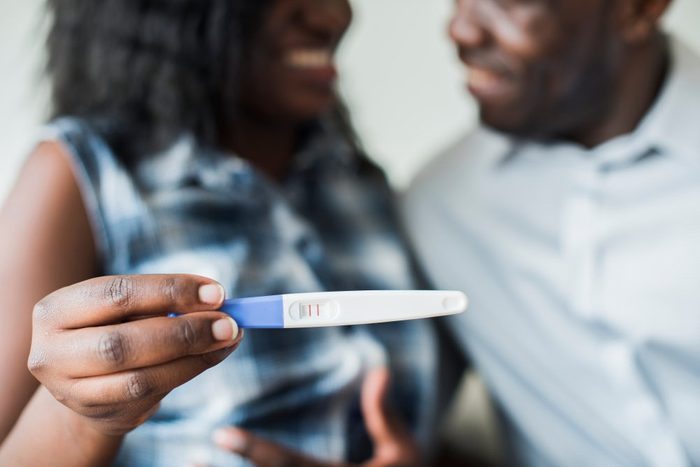
Your pregnancy history still matters
If you have a history of miscarriages or you developed diabetes or high blood pressure during pregnancy, you may be at an increased risk of heart disease later in life. “Your cardiac risks are based on your whole life,” Dr. Steinbaum says.

You are more prone to anxiety
Unfortunately, anxiety and anxiety disorders continue to pester women as they age—they’re among the higher risk groups, according to a study in Brain and Behaviour. Discuss your feelings with your doctor—and make an appointment with a mental healthcare professional if necessary. Learn why a jigsaw puzzle may be the best antidote for your anxiety.
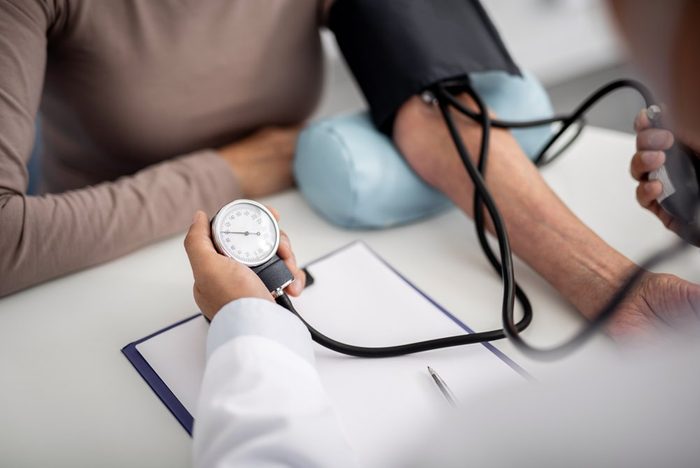
Well visits aren’t just for kids
See your ob-gyn or primary care doctor on a regular basis to make sure your cholesterol, blood pressure, blood sugar, and weight are within healthy ranges; also, make sure that you are up to date on all screening tests and shots.
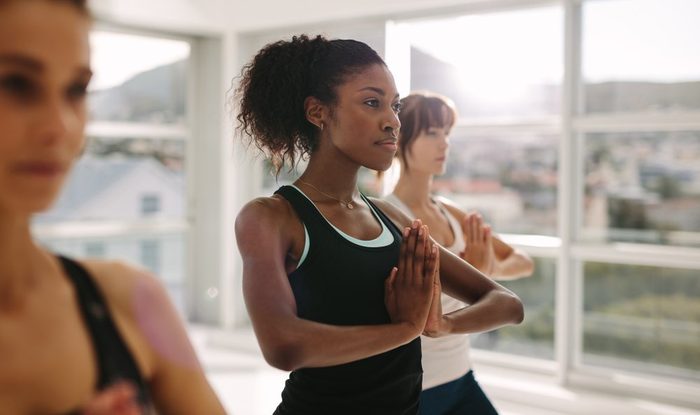
Take care of your joints
While there may be a genetic component to osteoarthritis, a lifetime of wear and tear on your joints can bring it on or make it worse. Keeping your weight in the normal range and engage in regular exercise and a stretching program like yoga to keep your joints limber. Here’s more on how to maintain healthy joints.
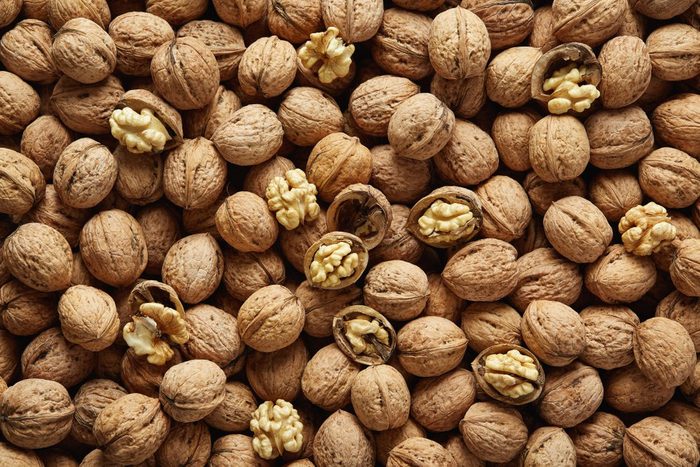
Eat these anti-aging foods
Some foods will keep you healthy, others will keep you looking good. The list includes familiar candidates like walnuts (for your brain and heart), carrots (for your eyes and blood pressure), salmon (for your health and your appearance), and more.

It’s still worth it to quit smoking
It’s true that the younger you are when you quit, the lower your risk of dying from smoking-related diseases. But you can benefit from kicking the habit at any age. Find out how quitting smoking can improve your complexion.
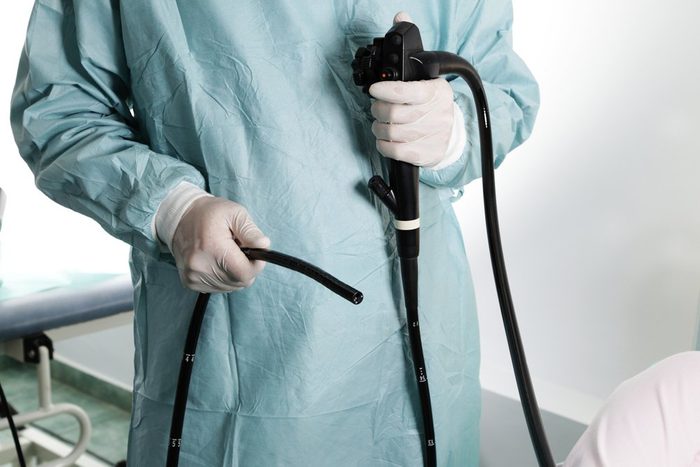
You really need to schedule that colonoscopy
Many dread the prep for this important screening test and keep putting it off. In fact, nearly 30 percent of people who should be screened don’t make the appointment, reports the health advocacy group Fight Colorectal Cancer. The Canadian Cancer Society recommends that people at average risk of colorectal cancer start regular screening at age 50. So if you haven’t had one yet, schedule yours today.
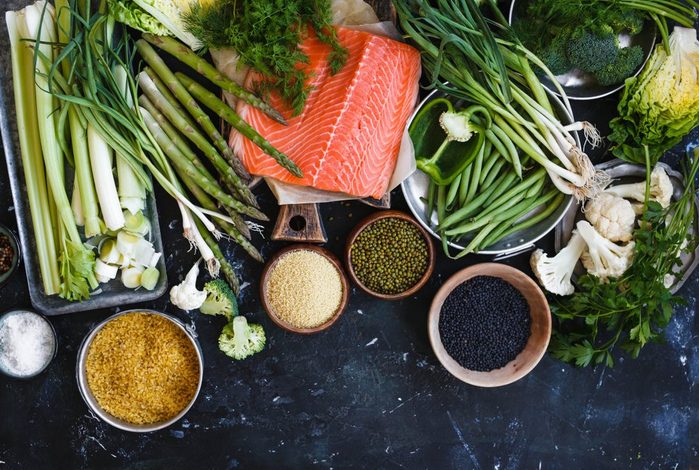
Give the Mediterranean diet a go
Women who stick to a Mediterranean diet have a 25 percent lower risk of heart disease, according to a study in JAMA Network Open. Mediterranean-style diets are rich in fresh fruits and vegetables, whole grains, healthy fats, and lean protein, and the more closely women stick to this style of eating, the greater the heart benefits. Find the perfect diet for your personality type.
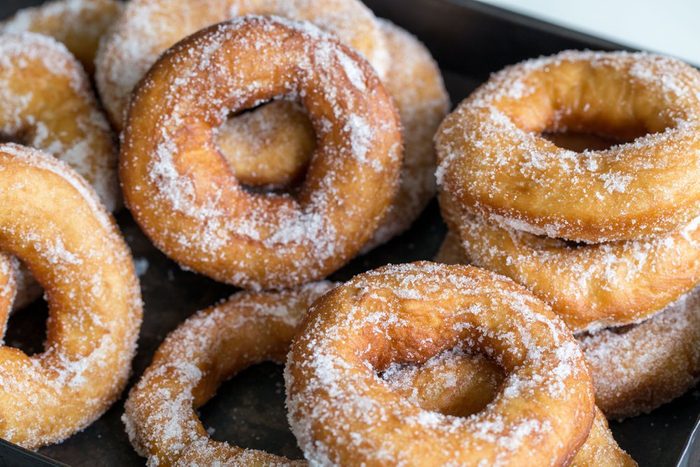
Don’t trust these 10 foods
You know what you should be eating—healthy fats, whole grains, plenty of fruits and veggies—but do you know what to avoid? There are foods that—if they’re a regular part of your diet—can tack years onto your appearance. Starting with: Candy bars, charred meat, booze, and processed carbohydrates (think white bread and donuts). These 10 things happen to your body when you stop eating processed foods.
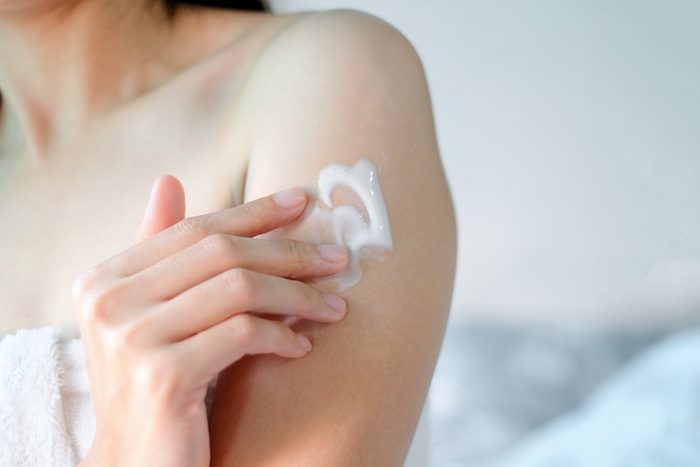
Don’t skimp on the sunscreen
Less than 25 percent of the sun’s damage to your skin takes place before you turn 18 years old—protecting your skin is a life-long process, according to a study published by the American Society for Photobiology. “A better educational approach for reducing skin cancers would be to instruct fair‐skinned individuals to protect themselves throughout their lives from being exposed to too much UV radiation,” the study authors conclude. Here’s the best mineral sunscreen you can buy in Canada.
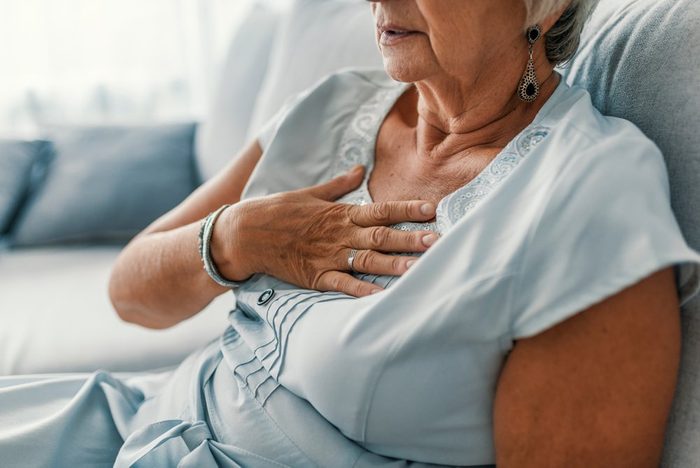
Don’t wait to call 911 if you have chest pain
Women wait approximately 37 minutes longer than men before calling 911 for chest pain, according to a study in the European Heart Journal: Acute Cardiovascular Care. “Women having a heart attack seem to be less likely than men to attribute their symptoms to a condition that requires urgent treatment,” says Matthias Meyer, MD, PhD, a cardiologist at Triemli Hospital in Zurich, Switzerland, in a news release. “Every minute counts when you have a heart attack. Look out for moderate to severe discomfort including pain in the chest, throat, neck, back, stomach or shoulders that lasts for more than 15 minutes. It is often accompanied by nausea, cold sweat, weakness, shortness of breath, or fear.”

Your purpose or your life
If you live with passion and purpose, you will live longer and better, according to the Midlife in the United States (MIDUS) study. Find whatever it is that gives your life meaning—it could be fostering pets in need, working to save the environment, or volunteering at the library. Just find something that brings you joy and fulfillment.

You may need more B12
One of the many unfair aspects of aging is that we don’t glean as many nutrients from our food. That can lead to nutrient shortages, and missing out on B12 can lead to some serious issues, according to information from the Cleveland Clinic. Vitamin B12 is crucial for generating DNA and maintaining healthy nerve and blood cells. Here are 10 surprising ways vitamin B12 can benefit your entire body.

You may not be getting enough fibre
Women older than 50 should shoot for 21 grams of fibre daily. Not only will this help keep you regular, but it protects your heart, helps maintain weight, and lowers cholesterol, according to the Academy of Nutrition and Dietetics. Aren’t getting enough? Try our fibre-packed green smoothie recipe,
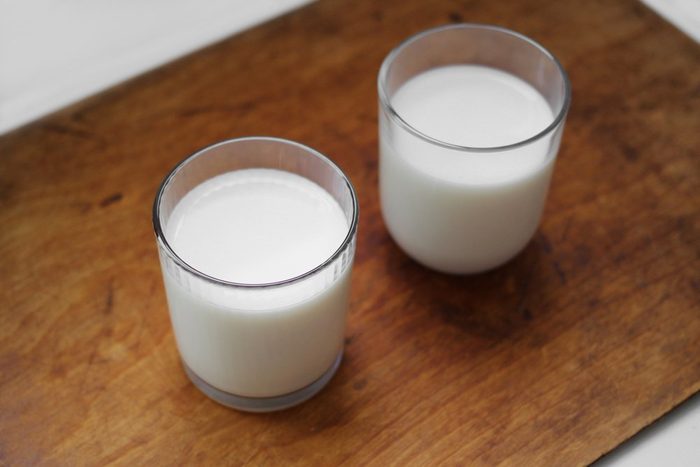
It’s time to double down on your calcium
Calcium helps keep your bones strong and sturdy. Aim for 1,200 mg of calcium after your 50th birthday. During menopause, declines in the female sex hormone estrogen can result in bone loss and leave you vulnerable to the brittle bone disease, osteoporosis. But calcium and a varied diet that includes dark leafy greens (for vitamin K and potassium, which also help build bones) can offer protection. These 9 signs mean you’re not getting enough calcium.
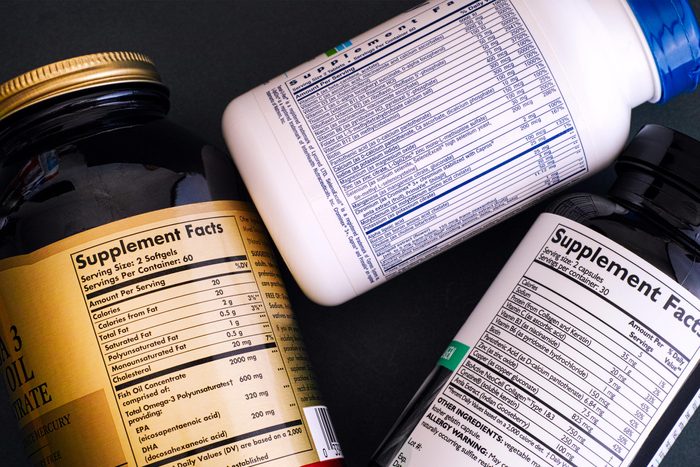
Rethink your vitamins
Your folate and iron needs drop after menopause. If your multivitamin contains mega doses of these nutrients, you may be getting too much. Check in with your doctor or a dietitian to make sure you are taking the right vitamins for your age. FYI: These vitamins can help boost your sex drive.
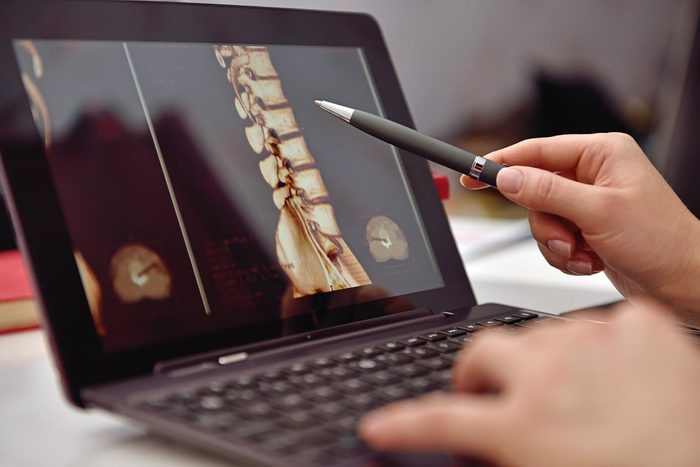
You may need a bone scan
Women over age 50 with fractures should have a bone density test or DEXA scan, according to the U.S. National Library of Medicine. For individualized guidance, discuss your risk factors for osteoporosis with your doctor at your yearly well visit. Here’s how to know if you’re at risk of osteoporosis.

You still need PAP tests
You need a Pap smear every three years after you turn 50 to screen for cervical cancer. If you have both a Pap smear and human papillomavirus (HPV) test, you can wait until once every five years, according to the U.S. National Library of Medicine. HPV is the virus that causes genital warts and several cancers, including cervical cancer. Check out 10 HPV myths you need to stop believing right away.
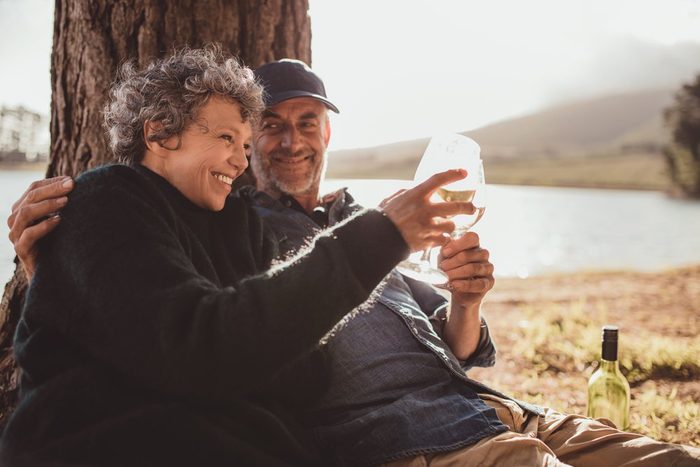
This is really just the beginning
People are living longer than ever—especially if they take care of themselves, says Dr. Moore. “Turning 50 is not the beginning of the end, it’s your new starting off point. It’s a great time to put you and your health at top of your to-do list.” So why not take a self-care vacay? Here are 10 reasons why you should escape to Palm Springs for the ultimate wellness getaway.
